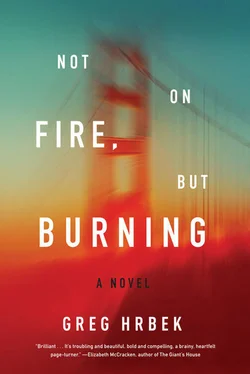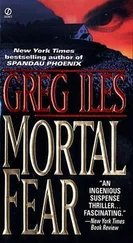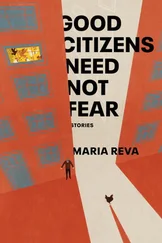Now, nearly twenty years later, say to your son: “Come on, Dodo.” Walk him to his bedroom. At the door, embrace him and tell him you’ll talk in the morning. You’ll find him the photo in the morning. In your own bedroom, in the bathroom: on the toilet seat, a single drop of blood. Clean it with tissue paper. In the bed, your wife is perfectly still. As she sleeps, think of the photo, the one taken on the beach, which unlocks nothing, as if it’s not your key, as if it were made to fit a lock in someone else’s mind — and all at once the burrowed thought will break the surface of thinking. That’s why Dorian wants the photo. Because he thinks the person behind the image, lying on the sand, the one holding the camera, is her .
What he did in the third war was vastly different from what he had done in the first. First, second, third. Arbitrary system of numeration. For there was only ever one war, decades ongoing, so long it was hardly surprising if your role, to say nothing of your stance, were to change along with presidential elections and dictatorial regimes and occupational governments from the beginning to what we were promised again and again would be the end. In the third war, when he was forty, forty-one, William Banfelder had been paid by a private American contractor called Securiforce to protect — by any means, necessary or unjustified — cargoes ranging from computer hardware for forward-operating bases in the Forbidden Zone to frozen hamburgers for the fast-food chains in the Diplomatic Bubble. He took the job for the money (several million dinars a week stuffed into a yellow envelope like a ransom payoff), and soon came to understand that one could not do the job without doing violence, and so the making of money had become very quickly and hopelessly equal to the taking of life.
But the first war.
A twenty-, twenty-one-year-old Marine, William Banfelder had been paid by the United States government little better than federal minimum wage (a couple thousand dollars a month direct-deposited into his Armed Forces bank account) to transport food, water, medical supplies, and building materials to about two million refugees who, through the winter, had been starving to death and freezing to death in the Taurus Mountains on the border of Turkish Anatolia and the Islamic Caliphate. He was then a lance corporal. Had served two quiet years in a quiet world. His unit deploying routinely to the Mediterranean then sailing back to the Carolina Colonies across the imitative fallacy of an ocean at peace. Until a breakaway republic within the Caliphate — or a republic sponsored covertly by the Caliphate (the whole truth was, and still is, uncertain, though no one disagrees that they were Baathists from Iraq led by an Army general named Saddam Hussein) — crossed the border into British Kuwait and seized the Al Burqan fields of the Kuwait Oil Company. Will Banfelder and the other men of the 24th MEU did not go to the Gulf. When the air war began, they were floating on the USS Charleston off the coast of Sardinia — and when the air war ended thirty days later, they were still floating there, and were still floating when the ground war began and a hundred hours later ended. And that, it was proclaimed, was the end. End of a war whose curtain had in truthful reality only just gone up, and onto the stage of which Will would not enter for another month when the Charleston would dock at Iskenderun and the humanitarian operation would get under way. Convoys of cargo trucks and Humvees and M934s ring-mounted with.50-caliber machine guns manned by grunts like Will. Four hundred miles overland from the harbor to a forward base in a Turkish village of mud huts and mules called Silopi — and from Silopi, two times daily, over the border into what some called Kurdistan, to a city named Zakho, where an international brigade of soldiers was pitching tents for the people coming down out of the mountains they had fled into when the war had not so much ended as divided like a parent cell to spawn a next generation of fighting, civil and sectarian — and though many had died in the winter, now it was spring in the valley and the people were coming down out of the mountains and not being hurt, they were being helped, and Will Banfelder was helping them.
He was twenty, twenty-one then. He is seventy, seventy-one now. And still, in a ring box furred with velvet, he keeps a thing he earned then, which looks like money though it has no monetary value. A silver medallion: on the heads side is a relief pallet parachuting past an Islamic moon; on tails, an American soldier holding hands with a boy.
The kids will arrive at eleven: five boys and a girl. Two of them, Dorian and Zebedee, he has met. The others, from the mosque, he hasn’t; and yet he knows them better — not because they’re Muslim, but because they have already friended him on Lifebook. Karim has known for a long time about social networking. In the camp, however, he didn’t really understand what it was, since there weren’t any devices to network with.
One time back before the deaths of loved ones and the addictions of drugs, Hazem had said:
You try to get as many friends as you can .
So it’s like a game?
Right. You try to know the most about what all your friends are doing and thinking all the time .
Back then, Karim wasn’t so amazed by the idea. His only frame of reference was a pair of walkie-talkies he and Hazem and Yassim had found, still packaged, in a not entirely looted department store: You held a button to speak, pushed another to transmit messages with high-pitched beeps. They were good for playing war: two of the boys with the radios, tracking the third whose mission was to reach undetected, with a dirty bomb fashioned from the viscera of a clock radio, one of two possible targets, like an old barber shop imagined to be a foreign embassy or a dumpy motor inn imagined to be an opulent tourist hotel. But Karim thinks now, with a kind of embarrassment, that all you could do was talk on them (or attempt to through a constant crackle of static). Whereas the smartphone is also a television, a camera, a clock. It can show you where you are on a map and the path to where you want to go. Though most incredible to him is that, after only five days in this new place, this new life, he has made fifteen friends without meeting a single one of them.
“Hey, bud. You awake?”
“Yeah.”
The door opens; and as the old guy takes one step over the threshold, Karim sets the phone aside and sits up straight on the edge of the bed.
“You know what I forgot?”
“What?”
“Fudge sauce. I got whipped cream and ice cream but I forgot the sauce.”
“I think it’s okay.”
The old guy shakes his head and says a sundae cannot kick ass without fudge sauce. In other words, Karim thinks, get some real clothes on because we’re going to the supermarket. But then he says, “But maybe you’d rather hang here.” And it takes Karim a moment to understand that he is being asked if he would rather stay for the first time in the house alone. He says, “Yeah, I’ll hang here.” The old guy nods, almost says something but stops himself, and then departs. As he hears the closing of the front door, Karim can almost see: It’s not that he doesn’t trust me; it’s something else . On the way downstairs, he checks his news feed and learns that the girl who’s coming to the party later (her name is Khaleela and she’s Muslim but not Arabic) is eating Lucky Charms for breakfast. Two people like the post. Karim hasn’t liked a post yet, but he decides to like this one — and then he decides to write a comment ( I’m eating Cocoa Pops ), and almost instantly, his comment has two likes, and someone else has written: I’m eating Corn Crackos . He smiles. Raises a spoonful of cereal to his mouth. For a few seconds, there’s nothing but the conversation thread and the sugary crunch — and then, suddenly, it’s like the other day in the swimming pool when he was floating alone, drowsy and content. He wonders if he is being tricked. If the devil is filling his head with illusions.
Читать дальше












